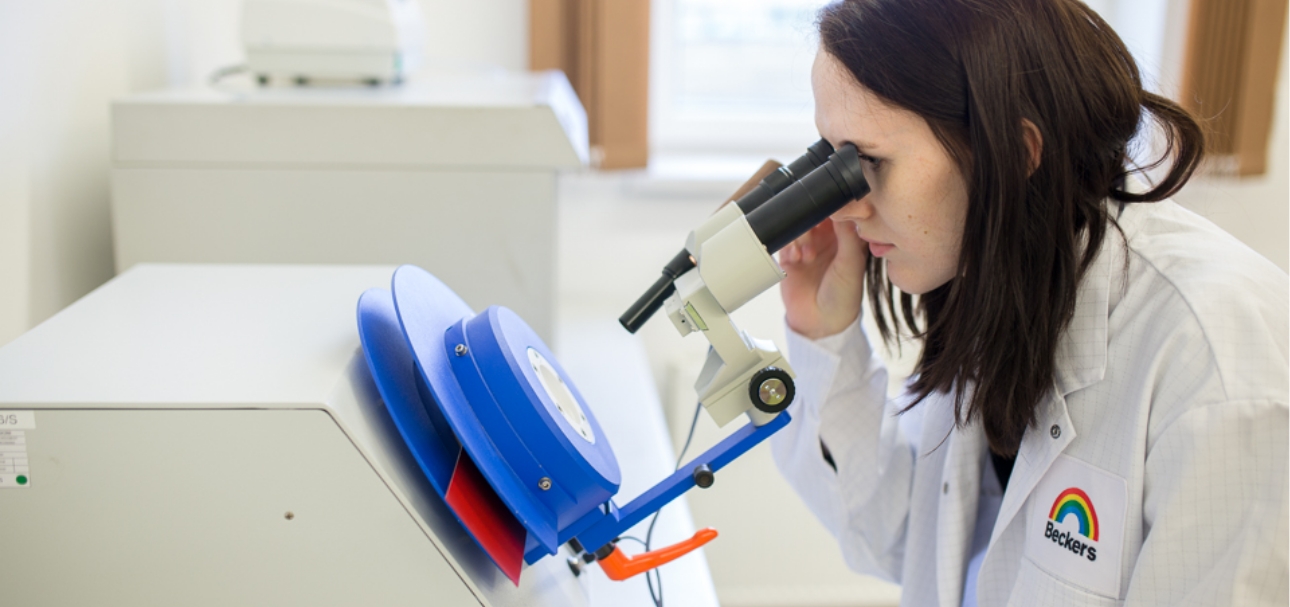Sustainable research is central to our new R&D Strategy
With our new CTO, Gavin Bown, joining in 2021, we launched our new R&D Strategy. It places a significant focus of our activities on the development of more sustainable products.
The new strategy has three pillars:
1. Connected Global R&D Organization
Beckers is a decentralized organization, but to maximize resource efficiency and leverage, we need R&D to be connected across all of our locations. With the formation of the Global R&D Leadership Committee, we are driving the Global R&D Strategy and way of working, and sharing learnings and insights in key areas such as product portfolio, raw materials and sustainability.
2. Bringing the Outside In
Beckers has extensive in-house development capabilities, but we are always open to learning from other industries and partnering to develop more sustainable products and securing raw material supply. We are therefore putting more focus on technology scouting. This means we are looking outside the company and our traditional supplier base for emerging new technologies that will enable us to innovate – especially within the sustainability space. By broadening our ecosystem of partners, we can find synergies and potentially make technological breakthroughs. This includes collaborating with research institutes and innovative start-up companies, and funding PhD research. To ensure we have access to sufficient bio-based raw materials in future, we are establishing supplier partnerships today, and considering acquiring important technology providers or suppliers.
3. Innovation Governance
We have established two new innovation governance forums, with a view to improving due diligence, traction and success rates for innovation within Beckers. The Global Innovation Committee (GIC) will govern projects within the Long Term Development (LTD) portfolio, ensuring that there is good project management discipline and commercial alignment. The Regional Innovation Committees (RICs) will manage innovation funnel deployment within each region. The purpose of these two important governance forums is to enable better decision making in terms of what we work on, and to improve the deployment to market and commercial success by engaging the full organization in the innovation process.








